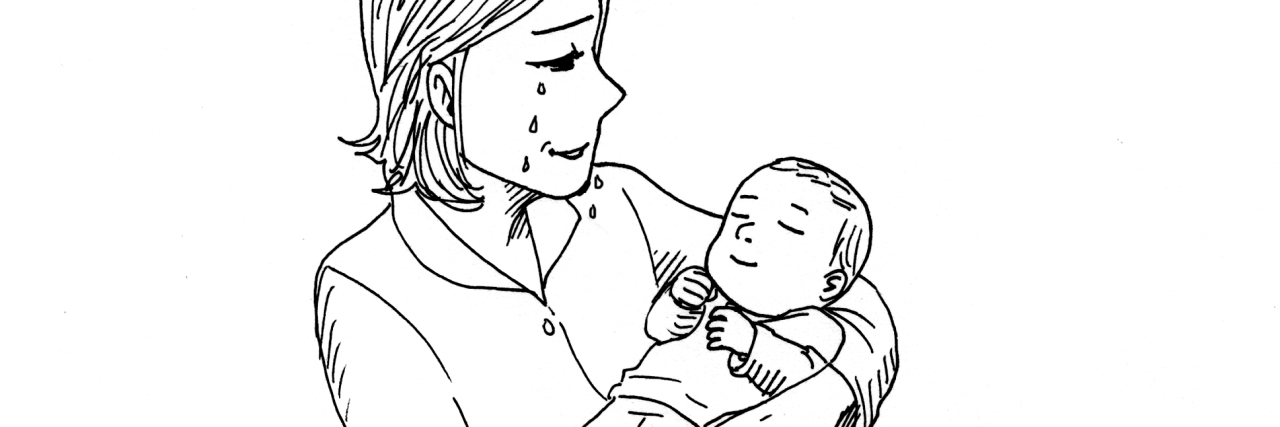The following is a revised excerpt from “Oh Baby! A Mom’s Self-Care Survival Guide for the First Year” by Maria Lianos-Carbone, available at Amazon and Barnes & Noble.
When I had my first son, there were no online support groups. I also was new to my area and hadn’t made friends yet. My old friends didn’t come around as much, and I felt they stayed away to give me space, but what I really needed was their company. Some friends who didn’t have kids shied away… maybe they felt like they didn’t know what to do or say or felt that staying away was what I wanted.
The truth is, I didn’t know what I wanted at times. While I felt I needed to be alone, what I really needed was support. My feelings of loneliness even seemed confused because, when I did have visitors, I felt that was a burden as well. In hindsight, I realize now that what would’ve made all the difference was practical support — family and friends who could come over and help me manage my home — fold laundry, cook dinner and run errands while I rested, recovered and took care of my baby. My son was also colicky. That added to a very difficult first few months. Dealing with two to three hours of screaming a day took a toll very quickly.
I questioned myself: Am I doing something wrong? Why can I not comfort and soothe my baby? These kinds of feelings can lead to worries that people think you’re not doing a good job. If you have a postpartum disorder, you may struggle because you know you shouldn’t care what people think but, ultimately, you fear people are judging you. You feel pressure to show the world you have it all together, when in truth you doubt your ability to be that perfect mom the media portrays. You may feel anxiety when you leave the house for simple errands.
For me, the anxiety rushing through my body when I had to go out with the baby was insurmountable. I worried: What if I have to change his diaper and there is no changing table? What if I struggle to open or close the stroller? What if he starts crying in the store? What if I have trouble getting him to breastfeed in public? What if he starts to wail in the car seat?
The hassle just to get prepared to go out of the house took longer than the outing itself. With all the anxiety of taking the baby out, I preferred to stay home. I isolated myself even more, which impacted my feelings of depression. It was a difficult cycle. I needed help. When I finally went to see my doctor and she asked, “How are you really feeling?” I burst into tears. I didn’t have a clear answer as to why I was crying. According to people around me, I had no reason to be feeling depressed — I felt a deep sense of sorrow, but there wasn’t a clear, defining reason. For whatever reason — cultural, societal, self-inflicted pressures — new moms often feel a need to live up to a pedestal, to be a perfect mother and perfect wife who can do it all and do it all well. When these pressures build up, and you feel you are not doing it all, this contributes to postpartum mood disorders.
The melancholy had taken over, and I couldn’t simply shake it off. That’s the thing with depression — you can’t just wake up and decide not to be depressed. You can’t just will yourself to be more positive. You can’t just snap out of depression.
Some fail to realize that mental illness, just like a physical illness, is real. There is no shame in getting help. When I was contemplating antidepressants, I remember my doctor making the decision so simple. She said: “People take medication for their heart condition, or diabetes — so why would you question taking it for your brain?” Finally, I went on medication, and it was as if the thunderstorm had ended and the sun started to shine through the clouds. The fog that occupied my head for months finally cleared. I felt normal again — not happy, because the medication just takes the edge off — but my normal self. You are not alone.
Follow this journey on the author’s blog.
If you or a loved one is affected by postpartum depression or other postpartum disorders and need help, you can call Postpartum Support International‘s hotline at 1-800-944-4773.
We want to hear your story. Become a Mighty contributor here.
Image via contributor

